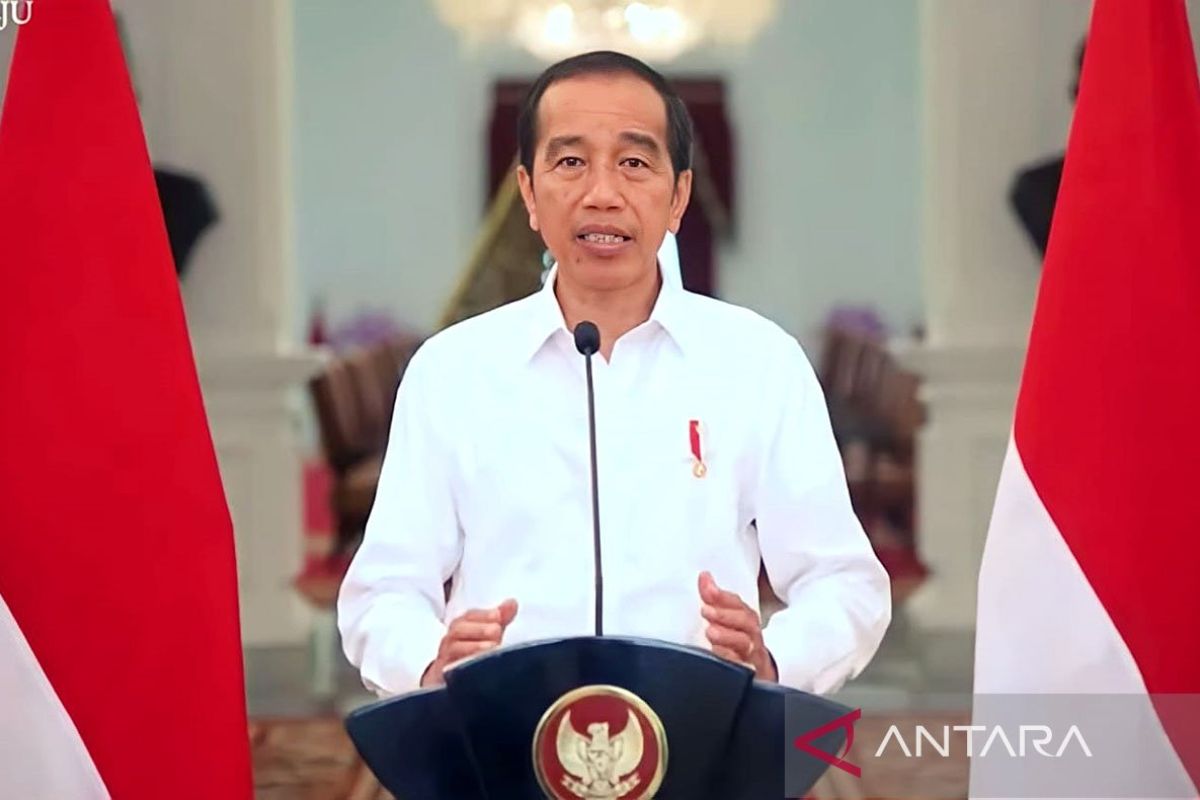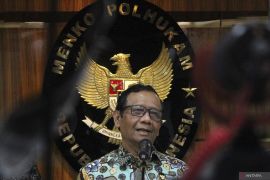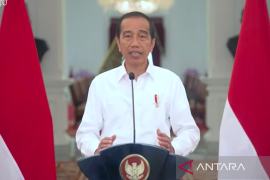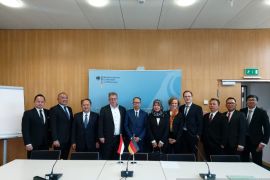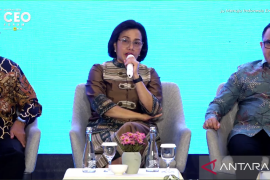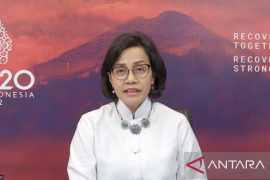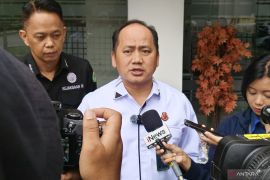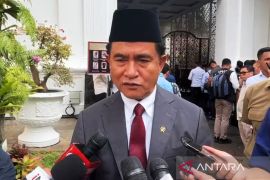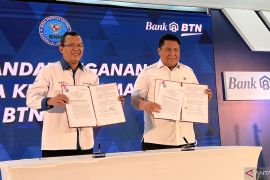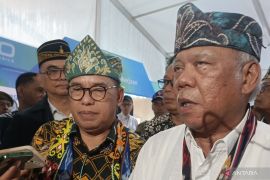The membership followed Indonesia’s consistent endeavors to become the 40th member of the FATF since June 29, 2018, when the country was granted observer status.
International recognition of Indonesia’s regulatory effectiveness and regime of anti-money laundering, terror financing prevention, and weapons of mass destruction (WMD) non-proliferation is expected to support the economy by drawing domestic and foreign investments.
Following up on the good news, the government issued Presidential Decree No.14 of 2024 concerning Indonesia's FATF membership, which was signed by President Joko Widodo (Jokowi) on April 5, 2024.
The issuance of the degree was guided by the need for building international support and commitment to combat transnational crimes, such as money laundering and financing of terrorist groups.
Indonesia, which is among the world’s largest economies, needs to contribute and participate in the FATF to protect its economic stability and financial system integrity from the threats posed by such crimes.
FATF is an international organization that focuses on global measures against money laundering, terror financing, and proliferation of WMDs.
It is safe for Indonesian people to view their country’s accession to the FATF and the issuance of the presidential decree as the first big step toward a better regime of anti-money laundering and terrorism financing prevention.
Related news: President signs decree on FATF membership
Devising sanctions
In his speech at an event held to mark the 22nd anniversary of the National Movement Against Money Laundering and Terrorism Financing at the State Palace, Jakarta, on April 17, President Widodo expressed the hope that Indonesia’s full FATF membership would encourage stakeholders to reaffirm their commitment to thwarting and eradicating money laundering practices.
The head of state said he considers the FATF membership as highly instrumental for Indonesia to raise its economic credibility and further polish international perception of its financial system, which, in turn, is expected to lead to a surge in investments.
Becoming a full member of the FATF was not easy, he noted.
With that in mind, he said, Indonesia deserves appreciation for gaining approval from the international community for its effective regulation, coordination, and implementation of measures to combat money laundering and terror financing.
Widodo also emphasized the need for the relevant ministries and agencies to remain alert against new technology-based money laundering, while intensifying international cooperation, strengthening regulations, ensuring transparent and indiscriminate law enforcement, and utilizing conveniences offered by technology.
He said that agencies such as the Center for Financial Transaction Reporting and Analysis (PPATK) need to step up synergy and continue innovating to remain ahead of money launderers and terrorism financiers.
He then drew attention to the Asset Forfeiture Bill, which he expects the House of Representatives (DPR) to pass soon.
The head of state expressed the belief that the bill would help the country punish money launderers and retrieve assets.
"We must return what belongs to the country and the people. All involved in acts that lead to state losses must be held responsible," he affirmed.
Related news: Indonesia's seat in FATF for countering terrorism financing: Observer
Next steps
Coordinating Minister for Political, Legal, and Security Affairs and chairperson of the National Coordinating Committee for Prevention and Eradication of Money Laundering, Hadi Tjahjanto, said that Indonesia’s FATF seat has provided the country with an opportunity to participate in the formulation of international standards on measures against money laundering, terrorism financing, and proliferation of WMDs.
However, since Indonesia must fulfill its obligations as a full member of the task force, the government needs to provide a sufficient budget to each relevant ministry and agency to enhance the quality of data and human resources.
The country also needs to sustainably improve the governance and effectiveness of its movement against the three transnational crimes by submitting a follow-up report to the FATF.
It is also vital that Indonesia maintain and step up its active role in international forums held by the task force by strengthening the institutional capacity of each relevant ministry and agency.
The government has designated the National Strategic Action Plan for the Prevention and Eradication of Money Laundering, Financing Terrorism, and WMD Proliferation 2024 as a national guideline for mitigating transnational crimes and emerging threats.
PPATK head Ivan Yustiavandana said that, ever since it acceded to the FATF, Indonesia has formed a joint team comprising officials from 23 ministries and agencies, which has been tasked with following up on the feat.
The National Coordinating Committee for the Prevention and Eradication of Money Laundering has taken many steps to promote the national movement against transnational crimes at ministries and agencies.
Meanwhile, a criminal law observer from Padjadjaran University, Sigid Suseno, opined that Indonesia must make good use of its FATF membership to prevent money laundering and punish perpetrators.
Becoming a member of the FATF, he said, means that Indonesia has gained the backing of 39 countries that might present witnesses, experts, and items of evidence to deal with money laundering practices, including those involving crypto assets.
Since President Widodo has highlighted that money launderers are using crypto markets to cover their tracks, the relevant stakeholders need to continue their vigilance against new money laundering practices to ensure effective law enforcement, the observer said.
Suseno highlighted the need for law enforcement institutions to intensify coordination to keep up with the ever-evolving modes of money laundering, while noting that money laundering can pave the way for other crimes, such as drug abuse and terrorism.
He also deemed it critical for Indonesia to promptly translate the Asset Forfeiture Bill into an applicable regulation to help law enforcers track down the sources of assets obtained through criminal activities.
Meanwhile, M. Syauqillah, a security and terrorism expert from the University of Indonesia, stressed on the need for the government to treat Indonesia’s FATF membership as an opportunity to enhance synergy and coordination among institutions to deal with terror financing.
He urged the government against relaxing surveillance of terror groups and their sources of financing, and pointed to the arrest of eight terror suspects in Central Sulawesi though the situation in Indonesia is believed to have been conducive and free from terror attacks in the past few years.
Therefore, it is crucial for Indonesia to make the most of its FATF membership to root out money laundering and terror financing and create a conducive investment climate.
Related news: Indonesia's FATF membership boosts money laundering fight: Jokowi
Editor: Yuni Arisandy Sinaga
Copyright © ANTARA 2024
